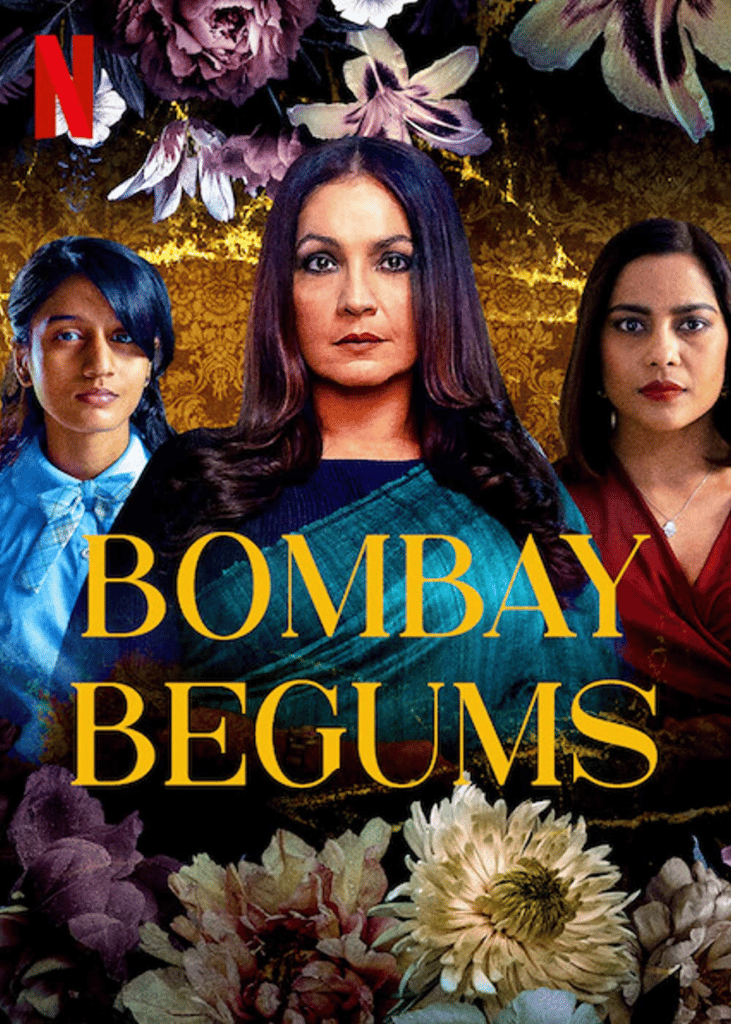
Directed by: Alankrita Shrivastava
Cast: Pooja Bhatt, Amruta Subhash, Plabita Borthakur, Shahana Goswami, Rahul Bose and Manish Chaudhary
BLUF
Four women trapped in the corporate games of corporate India trying to make their way through the web of patriarchy, expectations, their own guilt, and aspirations.
THE MEAT AND THE POTATOES
Rani (Pooja Bhatt), the CEO of a private bank, goes to great lengths to brush grave troubles under the carpet so she can appease the teenage children of her husband and somehow buy their loyalty and his acceptance, often through illicit means. Fatima (Shahana Goswami), Rani’s number two at the bank, bends over backward to fulfil the desires of her husband(paired again with Vivek Gomber), who is jealous of her career success and somehow wants to have the last say about the decisions about their life. Then there is the blackmailing Lily who is a golden-hearted prostitute but a cold scamming blackmailer extorting Rani of millions to get for her handicapped son a good life she feels he deserves, played by Amruta Subhash. Ayesha (Plabita Borthakur), a small-town girl making her way to a Mumbai career to escape getting married at home while experimenting with the new life and newfound as a bisexual woman.
IN THE ZONE
Rani Singh Irani (Pooja Bhatt), the first female CEO of the Royal Bank of Bombay, has to turn around the fate and the fortune of a bleak financial picture, fueled by huge loans that went bad and the prying eyes of a board room full of men who are waiting for her to slip up whether in her decision-making process or by the process of her hormonal balance.
Her husband Naushad (Danish Husain) much in love with his dead wife is supportive of her career which she balances along with the hatred she buys from his two teenage stepchildren Zuravar (Neel Raj Dewan) who likes to get high; who also gets zonked when he goes to visit Lakshmi “Lily” Gondhari (Amruta Subhash) to pay to lose his virginity and disinterested teenage stepdaughter Shai (Aadhya Anand) would rather be an artist.
Shai provides commentary on the story of the women in the show, saying “Some women are born to rule. We call them queens. They bleed for their dreams and expect others to bleed for them.” Shai wants no part of that, believing the fast-paced, ambitious world of business in Mumbai is not for her.
One of the best negotiators at the bank is Fatima Warsi (played by the super talented Shahana Goswami); whose uninspiring, misogynistic husband Arijay Sinha (Vivek Gomber) also works at the bank albeit not at a position as powerful as hers. As the couple are trying to get pregnant using IVF, the husband tries to use the power dynamic of the baby to disempower the wife’s decision-making with respect to her career and personal choices.
Ayesha Agarwal (Plabita Borthakur) put a more conservative return rate on a deal sheet, causing an almost lost deal and a lost job. Rani, who is looking to create a Venture Capital division, wants to promote Fatima to create her own power circle to usurp the aspirations of Fatima’s mentor Deepak Sanghvi (Manish Chaudhari).
Lilly uses Zuravar’s accident of her son to extort money and favors from Rani to improve her own son’s fortunes only to realize that money cannot buy the tag of belonging in the society as she continues getting marginalized as the prostitute that she used to be.
Ayesha gets sexually harassed by Fatima’s esteemed mentor only to be harassed to drop the case until the women find the collective will be rise together against the patriarchal walls that held them down for centuries without caring about the consequences to themselves just because they did not want their daughters to face the consequences of their own silence.
FWAR
While the show’s ‘smash the patriarchy’ spirit is progressive and Shrivastava is one of the finest feminist filmmakers of India, Begums of Bombay leaves little room for any discrepancies in her form of storytelling.
Alankrita Shrivastava understands the modern Indian woman like no other. Her earlier work with Lipstick Under the Burka and Dolly Kitty aur Who Chamakte Sitare are testimony that she deeply recognizes the nuances of the psyche of the evolution of the modern Indian woman and can portray these women with great realism. The hypocrisy of the contradiction of the ethics of the extramarital relationship versus the morality of fasting for Karva Chauth so ironic, yet so true of the evolution of the lives of the modern Indian woman battling the old and the new within our own selves.
The strength of Bombay Begums is in its characters. Each one of these women is real, amongst us and from our surroundings. The direction, cinematography and writing is quite impactful as is the storytelling of its own
WHAT WE LOVED
The narrative of the complexity of women stories
WHAT WE MISSED
Deeper connect with the characters.




